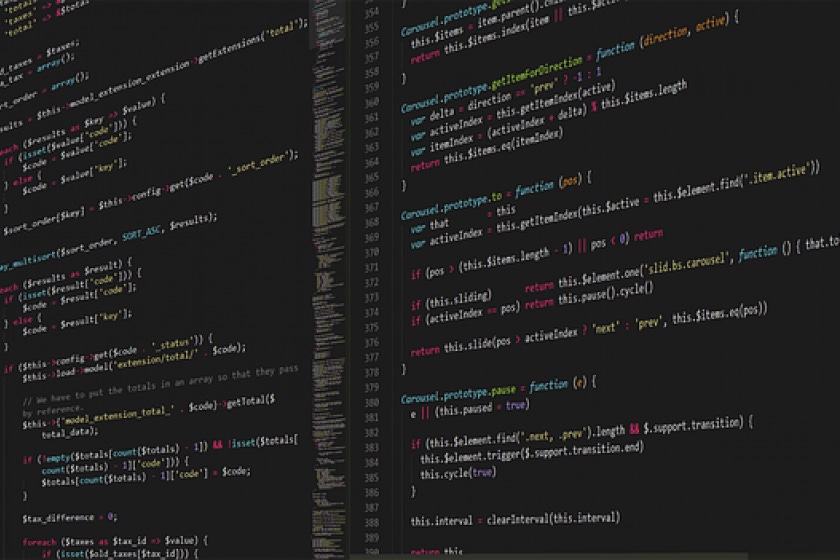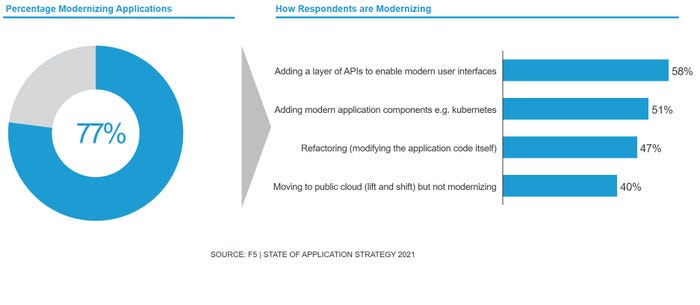App Modernization Goes Mainstream AgainApp Modernization Goes Mainstream Again
The reality of modernization as a survival skill for business is seen in the way modernization has morphed from competitive advantage to mainstream initiative.
March 9, 2021

Twenty years ago, when I was still allowed – even encouraged – to code, I was modernizing monoliths using APIs to extend a core business app to the web using a three-tiered architecture. It was cutting edge back then, I assure you. The web was exploding with possibilities, and it was a new way to experience business services that no company could afford to ignore.
Ten years ago, organizations were modernizing again, this time using APIs and modern mobile frameworks to build out apps for our increasingly capable mobile devices. Another new experience, another wave of modernization.
Today, organizations are at it again, modernizing apps to enable a new generation of digital experiences that spans traditional data centers, public cloud, and even SaaS.
No doubt in ten years hence, they’ll be doing it again for the edge.
Every ten years or so, like clockwork, we discover new ways to experience life through the lens of technology. From the web to mobile to our televisions, applications have acted as the gateway to a new set of experiences.
Today’s new set of experiences has been brought to you by digital transformation and accelerated dramatically by our need to adapt to a life under the cloud of a pandemic. Where previous modernization efforts have been driven by a ‘fear of missing out’ on the Next Big Thing™, today’s efforts are being driven not by the fear of missing out, but the fear of fading into irrelevance.
That fear is based on reality. Many organizations that could not adapt to a digital default operating model have sadly struggled to survive over the past year. Those that have adapted have managed to keep running and, in some cases, even thrive.
Consider that fifteen years ago, we saw a crop of "delivery" services emerge that tried to do what the likes of DoorDash and Grubhub are excelling at doing today. Most of the first generation of delivery services languished not only due to demand but the awkwardness of the technology at the time. The evolution of technology has enabled this business service to re-emerge as a modern experience and not only succeed but flourish. It includes payment processors, API-enabled restaurants, SMS integration, and Google Maps. The number of technologies required to create this new experience is overwhelming. Many are based on traditional applications that have been modernized to present new, digital interfaces.
The reality of modernization as a survival skill for business is seen in the way modernization has leapt from competitive advantage to mainstream initiative. Our annual research told us all methods of modernization are commonly used today to enable new experiences for largely remote consumers who now prefer digital as their default means of interaction. More than three-quarters of organizations across all industries across the globe are modernizing applications. Most of them prefer APIs and modern components as means to take business services digital, but refactoring remains an option – especially if you're a technology company.

20210309-how modernizing.jpg
Most organizations are using multiple methods to modernize applications. The methods they choose depend largely on the architectures and technologies in place today, as well as the skillsets and talent available to develop and operate modern applications.
But no matter how they decide to modernize applications, they are doing so.
Modernization has become mainstream again.
Read more about:
APIsAbout the Author
You May Also Like




